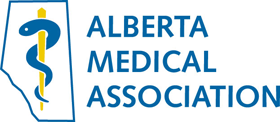Integrated care: What you told me
September 21, 2016

Dear Member:
I am very excited about some of the proposals in the tentative Amending Agreement relating to the new Integrated Care Consultation Agreement and the existing Primary Medical Care/Primary Care Networks (PCNs) Consultation Agreement. Between them, these frameworks help to solidify PCNs as the foundational model for primary care and start us on discussions toward an integrated care system. They also address payment reforms and improvements in information management and technology. This is an excellent opportunity for the profession to participate in the improvements that will make a big difference to how we work in the future.
On August 3, I wrote to you about a vision of an integrated care system. I received many responses from you, and I thought you might be interested to know what the profession is thinking.
Overall, most of the comments I received were positive. I am encouraged by this, but there is work to do as some of the comments indicate. Here is a representative selection of comments and perspectives.
- I will look for ways to innovate.
- The gauntlet has been dropped! Physicians, however, are very slow and resistant to change. There are many reasons for this – we are comfortable with the way things are. We are conservative by nature and training and, mostly, this is a good thing. In reality, however, needed change in our health care system has been coming at us for many years and it’s time to pick up the pace.
- Front-line physicians are often left holding the ball – feeling like they have full responsibility and accountability for difficult decisions, and then being judged for the decisions made, while people with more power and responsibility are at arms-length to meaningful accountability. If the medical culture is going to shift to shared responsibility and accountability, the cultural-shift, I believe, will be expedited by an example from management and government.
- Physicians can take control of this change or have it foisted upon us.
- Stewardship should be about doing what needs to be done efficiently and timely, and at the least cost. From what I can see we are going in the opposite direction.
- The way physicians are compensated is going to have to change to encourage the high quality, high value care that focuses on evidence-based health maintenance and prevention, while discouraging the low value care that our current system facilitates.
- It is long past time when physicians must recognize what is not working, what needs changing and the role physicians must play in building a better system. I agree with all of what you have stated and appreciate your representation of me and my colleagues as effective change agents and not impediments to progress. This is a great morale booster to those who may not see the way forward.
- The enormous care variation among providers and locations that is not explainable by what is best for individual patients. This is really just evidence that we don’t know the best practices for many of the conditions we manage and have not done a good enough job of examining our own practices, finding variation and discovering within that variation clues to better practice.
- I must admit that I am embarrassed on a daily basis as I go to work in the tertiary care emergency rooms of ______ and see example after example of how we are failing our patients with the system we have created. In addition, our “system” has enabled the patient to fail even themselves!
- Physicians continue to have their excuses whether it be their overhead, their extensive training, their legal defense, but nothing justifies some of the current practices and billings that go on and I don’t think voluntary measures will work.
- Your reference to “shared electronic health records” would certainly be helpful, as the current EHR system in Alberta (and likely Canada) is severely fragmented, with health care providers allowed to choose among dozens of different EMR vendors, none of which provide the ability to directly share information among them.
- Excellent emphasis on the “interest” of physicians and society in meeting the terms of the social contract that exists between us.
- In a perfect system, patients should be given a choice, but that will mean longer waiting times for certain physicians and too much choice does not mean better options.
We have not been sufficiently and consistently innovative yet. When considering improvements, we set up study groups, aim for universal consensus and then start some pilot projects. After a while, we start over with the same process. It is time to choose an approach to system improvement, stick with it and develop it to the best of our ability. For example, in primary care, PCNs present this opportunity.
My vision for our profession is a positive one, where we are effective stewards of resources. We work with the payer to provide value for money and with patients to co-produce health care events that they value. We understand and value all aspects of our social contract with the public: compassion; availability; accountability; working for the public good; and altruistic service on our side of the contract. Trust, autonomy, self-regulation, status and rewards sit on the other side.
In my view, this is a watershed moment for our profession. I love our profession. I hope it continues to be a great privilege to belong to it.
To maintain this, we must decide who we are and how we do our work. Our answers to these questions will determine what it means to be a doctor.
Please let me know what you think. Email president@albertadoctors.org.
Kind regards,
Carl W. Nohr, MDCM, PhD, FRCSC, FACS
President
P.S. Our website analytics tell us how many physicians (but not which ones) have visited the member-only vote information page on the Alberta Medical Association website. It appears the majority of physicians have taken at least one look, but we can also see that not as many have taken time to click the links provided to the Backgrounder, Overview, Frequently Asked Questions and other materials that are there.
Voting closes Thursday, October 13 at 4:30 p.m. You will find the voting button at the bottom of the vote information page. I encourage you to visit and take a good look at the documents we have prepared for you. Our goal is to give you the information you need to make an informed vote. My email address is there on the page if you have any questions or comments.
Two ways to get in:
1. Visit www.albertadoctors.org and hit the VOTE banner at the top of the page.
2. Click this link www.albertadoctors.org/services/physicians/our-agreements/ratification2016
You will need to log in for either option.

1 comment
Commenting on this page is closed.
F Oosman
10:02 PM on September 21, 2016
I am VERY unclear as o what we are voting for.
I need to see concisely as to what we are giving up and what we are gaining.
We are a group of 7 Family Physicians and we feel confused.